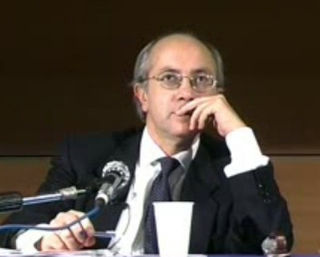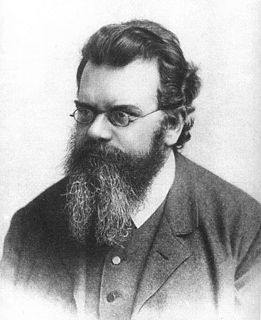A Quote by Frederick C. Beiser
The great German idealists from Kant to Hegel saw this idealism or nihilism as a reductio ad absurdum of any philosophy, and so they struggled by all conceptual means to avoid it.
Related Quotes
Since substance is infinite, the universe as a whole, i.e., god, Hegel is telling us that philosophy is knowledge of the infinite, of the universe as a whole, i.e, god. You cannot get more metaphysical than that. I think that Hegel scholars have to admit this basic fact rather than burying their heads in the sand and trying to pretend that Hegel is concerned with conceptual analysis, category theory, normativity or some such contemporary fad.
Some have said that the thesis [of indeterminacy] is a consequence of my behaviorism. Some have said that it is a reductio ad absurdum of my behaviorism. I disagree with this second point, but I agree with the first. I hold further that the behaviorism approach is mandatory. In psychology one may or may not be a behaviorist, but in linguistics one has no choice.
The housewife is an unpaid worker in her husband's house in return for the security of being a permanent employee: hers is the reductio ad absurdum of the employee who accepts a lower wage in return for permanence of his employment. But the lowest paid employees can be and are laid off, and so are wives. They have no savings, no skills which they can bargain with elsewhere, and they must bear the stigma of having been sacked.
The second [argument about motion] is the so-called Achilles, and it amounts to this, that in a race the quickest runner can never overtake the slowest, since the pursuer must first reach the point whence the pursued started, so that the slower must always hold a lead.
Statement of the Achilles and the Tortoise paradox in the relation of the discrete to the continuous.; perhaps the earliest example of the reductio ad absurdum method of proof.
Imagism was a reductio ad absurdum of one or two tendencies of romanticism, such a beautifully and finally absurd one that it is hard to believe it existed as anything but a logical construction; and what imagist found it possible to go on writing imagist poetry? A number of poets have stopped writing entirely; others, like recurring decimals, repeat the novelties they commeced with, each time less valuably than before. And there are surrealist poetry, and political poetry, and all the othe refuges of the indigent.
If God existed (a question concerning which Jubal maintained a meticulous intellectual neutrality) and if He desired to be worshiped (a proposition which Jubal found inherently improbable but conceivably possible in the dim light of his own ignorance), then (stipulating affirmatively both the above) it nevertheless seemed wildly unlikely to Jubal to the point of reductio ad absurdum that a God potent to shape galaxies would be titillated and swayed by the whoop-te-do nonsense the Fosterites offered Him as "worship.
The fact is that philosophy has been a decisive source of inspiration in all the great crises that Europe has faced. It has been so in the time that preceded the fall of the Roman Empire, when Augustine of Hippo delineated the features of a new spiritual civilization; in the age of religious wars, when Descartes and Hobbes established the principles of modern science and politics; and at the turn of the French Revolution, interpreted by Kant and Hegel as an event destined to change the history of the world.
To go straight to the deepest depth, I went for Hegel; what unclear thoughtless flow of words I was to find there! My unlucky star led me from Hegel to Schopenhauer . . . Even in Kant there were many things that I could grasp so little that given his general acuity of mind I almost suspected that he was pulling the reader's leg or was even an imposter.
Academic environments are generally characterised by the presence of peole who claim to understand more than in fact they do. Linguistic Philosophy has produced a great revolution, generating people who claim not to understand when in fact they do. Some achieve great virtuosity at it. Any beginner in philosophy can manage not to understand, say, Hegel, but I have heard people who were so advanced that they knew how not to understand writers of such limpid clarity as Bertrand Russell or A.J. Ayer.






























